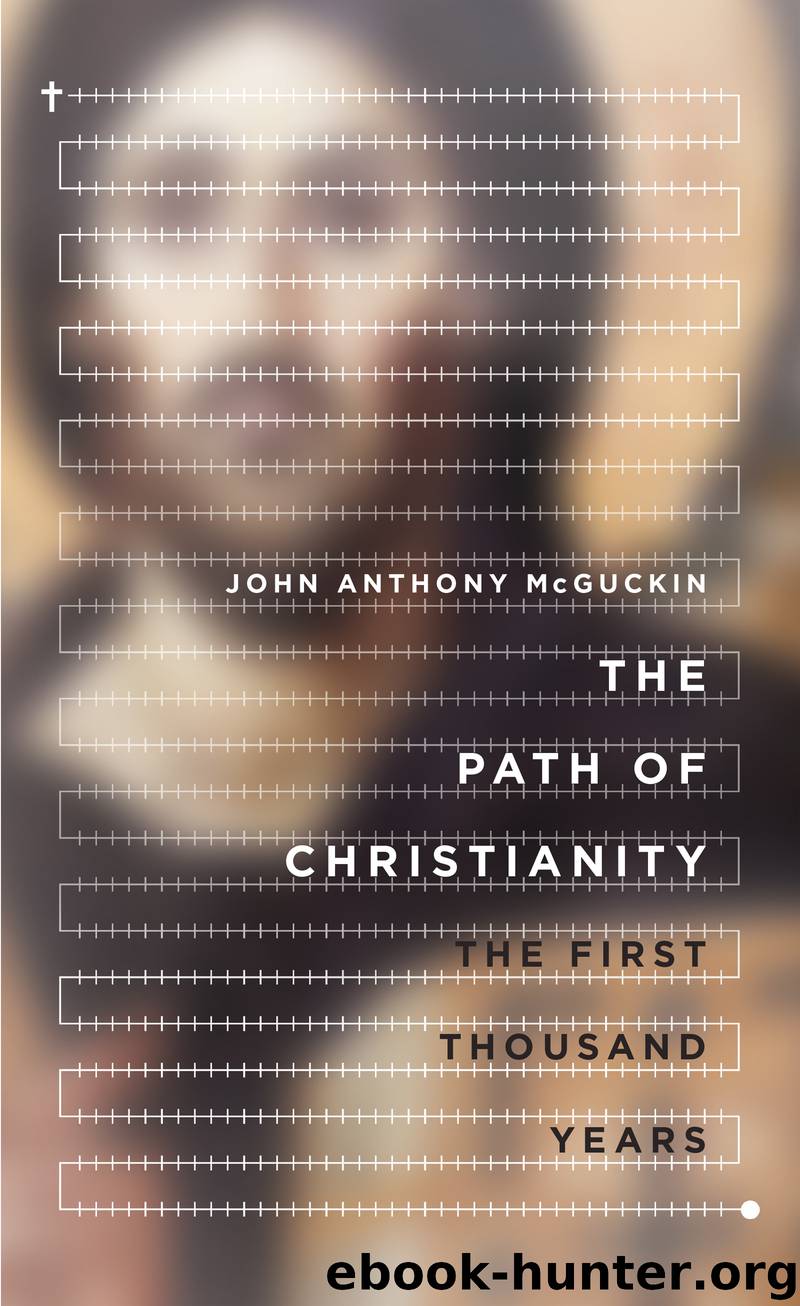The Path of Christianity by John Anthony McGuckin

Author:John Anthony McGuckin
Language: eng
Format: epub
Publisher: INscribe Digital
Published: 2017-04-07T21:23:00+00:00
Gregory the Great and His Successors
Pope Gregory (c. 540–604), who is now known as the “Great” to distinguish him from many other papal namesakes after him, was one of the most important of the early bishops of Rome: an outstanding political administrator in a time of great social unrest in Italy, no less than the beginning of the Dark Ages, and a highly practical theologian, whose work actually marks the birth of “pastoral theology” in the Western church.
Gregory belonged to an aristocratic Christian family in Rome at a time when the fortunes of both Italy and the ancient city were in decline because of Justinian’s wars of reconquest and later (from 586) raids from Lombardian insurgents. The Lombard tribes had flowed into Italy in the vacuum left behind by the exhausting wars between the Byzantine armies sent by Justinian to remove the Ostrogothic rulers. Very quickly they absorbed the remaining Ostrogothic leaders and set a permanent wedge between Italy and any hope of Byzantine reconquest. Gregory was politically astute enough to know that the future of Europe lay more in its own hands than in any protection it could hope for from Constantinople. The emperor’s exarch was still stationed at Ravenna, in the north, but now with only a small body of troops that were reluctant to engage with the Lombards. As time went on Gregory increasingly came to realize they would not offer much in the line of political protection.
Gregory was a skilled politician from his early youth. His father had been a senator at Rome, loyal to Justinian’s court, and in 573 Gregory himself became the prefect of Rome (the highest imperial civic office possible). Soon afterward he announced his retirement from public life and dedicated his extensive properties in Rome and Sicily to the cause of Christian asceticism. His large villa on the Caelian Hill, near the Colosseum, became his monastery of St. Andrew (still functioning), where he lived a life of scholarship and prayer with companions. This was the classic life of otium, or secluded leisure, that was traditional for retiring Roman nobility and was often couched in that era in terms of philosophic reflection and as such “askesis.” Gregory was different, however, from such earlier retired noblemen as Paulinus of Nola, insofar as he actually did engage himself with ascetical community life. He greatly admired the Benedictine spirit.
Having declared himself in a public way as a “man of the church,” however, his plans for self-determination were rudely interrupted, because Pope Pelagius II, now his ecclesiastical “superior,” quickly determined to reemploy his talents for the service of the church. The pope ordered Gregory to resume public ecclesiastical service, not monastic retirement, and so he was ordained deacon and sent as the senior papal representative (apocrisarius) to the court of Constantinople, where he lived from 579–586. In this time at the Eastern capital he learned many things about liturgical practice, chant systems and so on, which became the seed of several innovations he brought back to the Western church.
Download
This site does not store any files on its server. We only index and link to content provided by other sites. Please contact the content providers to delete copyright contents if any and email us, we'll remove relevant links or contents immediately.
The Gnostic Gospels by Pagels Elaine(2531)
Jesus by Paul Johnson(2362)
Devil, The by Almond Philip C(2332)
The Nativity by Geza Vermes(2230)
The Psychedelic Gospels: The Secret History of Hallucinogens in Christianity by Jerry B. Brown(2157)
Forensics by Val McDermid(2094)
Going Clear: Scientology, Hollywood, and the Prison of Belief by Lawrence Wright(1985)
Going Clear by Lawrence Wright(1968)
Barking to the Choir by Gregory Boyle(1822)
Old Testament History by John H. Sailhamer(1816)
Augustine: Conversions to Confessions by Robin Lane Fox(1773)
The Early Centuries - Byzantium 01 by John Julius Norwich(1745)
A History of the Franks by Gregory of Tours(1729)
A Prophet with Honor by William C. Martin(1725)
Dark Mysteries of the Vatican by H. Paul Jeffers(1723)
The Bible Doesn't Say That by Dr. Joel M. Hoffman(1681)
by Christianity & Islam(1635)
The First Crusade by Thomas Asbridge(1610)
The Amish by Steven M. Nolt(1574)
